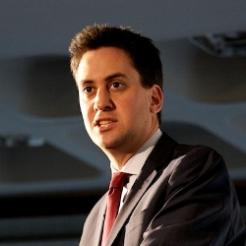Ed Miliband wants to give back control of public services to the people who use them, he said last night at the Hugo Young lecture.
Labour leader Miliband said that power being directed to people in public services is vital “because the challenges facing public services are just too complex to deliver in an old-fashioned, top-down way without the active engagement of the patient, the pupil or the parent: from mental health, to autism, to care for the elderly, to giving kids the best start in the early years”.
His speech centred on a theme of equality, with each person as important as the next. He said that active engagement from service recipients is vital as people’s expectations about having their say is growing even higher.
Miliband said that the knowledge and insight that users can bring to a service is even more important when there is less money to around to cope with all the demands and changes, adding that the next Labour government will face massive fiscal challenges including having to cut spending.
Through such services, Miliband said people would have greater power to hold to account a state that is not being responsive.
NCVO: more detail needed
Oliver Henman, who leads NCVO’s public service work, told civilsociety.co.uk that NCVO is interested in what Miliband was saying in regards to giving communities the power to actually design and deliver services.
However, he said: “What we’re not clear about from the speeches is what the detail looks like, it is an overview at this stage but there is not much information on how they would do that in practice. I look forward to seeing more in the coming months.”
Henman said he was interested to see how Miliband gets the balance right between the public and private sector.
He said: “Because obviously in recent years we have seen the risks from too much central government control, but also too much private control from organisations like Serco and others and delivering large contracts. So it is getting that balance right so that it actually favours communities that we are going to be interested in, and making sure that this is done in an accountable way."
Ahead of the lecture, Acevo’s chief executive Sir Stephen Bubb said: “Bringing community action into our public services should mean that power flows from those at the centre to the users of public services.”
He added: “I urge him to give citizens the power to choose for themselves the most appropriate service, care or programme for their needs and to make those rights to choice and voice enforceable. That will be a truly radical agenda.”
Social Economy Alliance: lack of people power
Celia Richardson, director of the Social Economy Alliance, said that the lecture highlights the absence of sufficient levels of people power which is undermining democracy.
She said: “The wider world is transforming itself through people-powered technologies like social media. But the real potential of this power-shift is yet to penetrate many areas of public service.”
Richardson added: “Collaboration among citizens acting as customers, commissioners and producers is the way to tackle our public service problems.
“But it goes way beyond this – it is also the key to tackling our major business and economic challenges: housing shortages; rising energy bills; transport failures; the growing need for decent care for elderly people; banks and lending stagnation; youth unemployment; and the need to develop sustainable local economies.”
During the lecture, Miliband referenced David Cameron’s promises of a Big Society, to unleash the forces of the voluntary sector. He said that Cameron had in fact unleashed something rather different.
He was that in fact it was responsible for “leaving the unsupported voluntary sector to pick up the pieces where the state has abdicated its responsibility”.
Miliband delivered the annual Hugo Young memorial lecture last nights at Kings Place, home of The Guardian.








